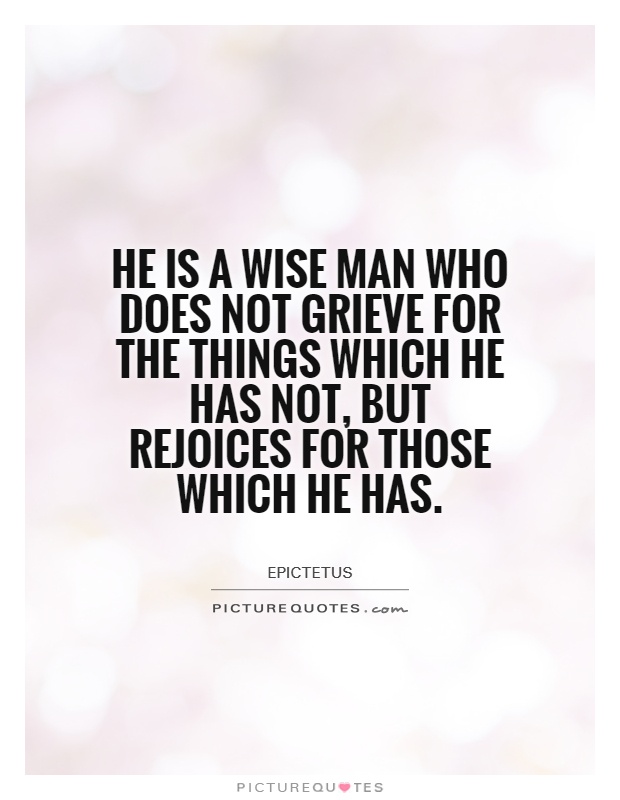He is a wise man who does not grieve for the things which he has not, but rejoices for those which he has

He is a wise man who does not grieve for the things which he has not, but rejoices for those which he has
Epictetus, a Greek philosopher born in the first century AD, is known for his teachings on Stoicism and the importance of focusing on what is within our control. One of his most famous quotes is, “He is a wise man who does not grieve for the things which he has not, but rejoices for those which he has.” This quote encapsulates the essence of Stoic philosophy and the idea that true happiness comes from accepting what we cannot change and finding joy in what we already possess.In the context of Epictetus’ teachings, this quote emphasizes the importance of cultivating a mindset of gratitude and contentment. Rather than dwelling on what we lack or what we wish we had, we should shift our focus to appreciating the blessings and opportunities that are already present in our lives. By doing so, we can free ourselves from the burden of unfulfilled desires and find peace in the present moment.
For Epictetus, the key to living a fulfilling life lies in recognizing the distinction between what is within our control and what is not. While we may not be able to change external circumstances or acquire everything we desire, we have the power to choose how we respond to the challenges and setbacks that come our way. By practicing acceptance and gratitude, we can cultivate a sense of inner peace and resilience that allows us to navigate life’s ups and downs with grace and equanimity.












 Friendship Quotes
Friendship Quotes Love Quotes
Love Quotes Life Quotes
Life Quotes Funny Quotes
Funny Quotes Motivational Quotes
Motivational Quotes Inspirational Quotes
Inspirational Quotes